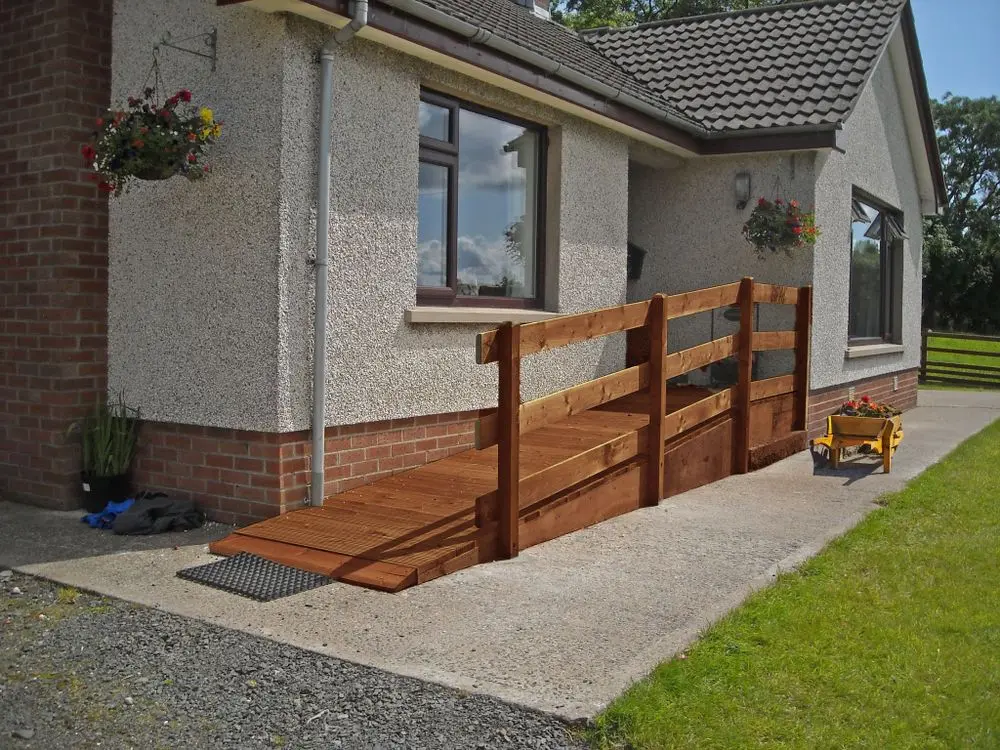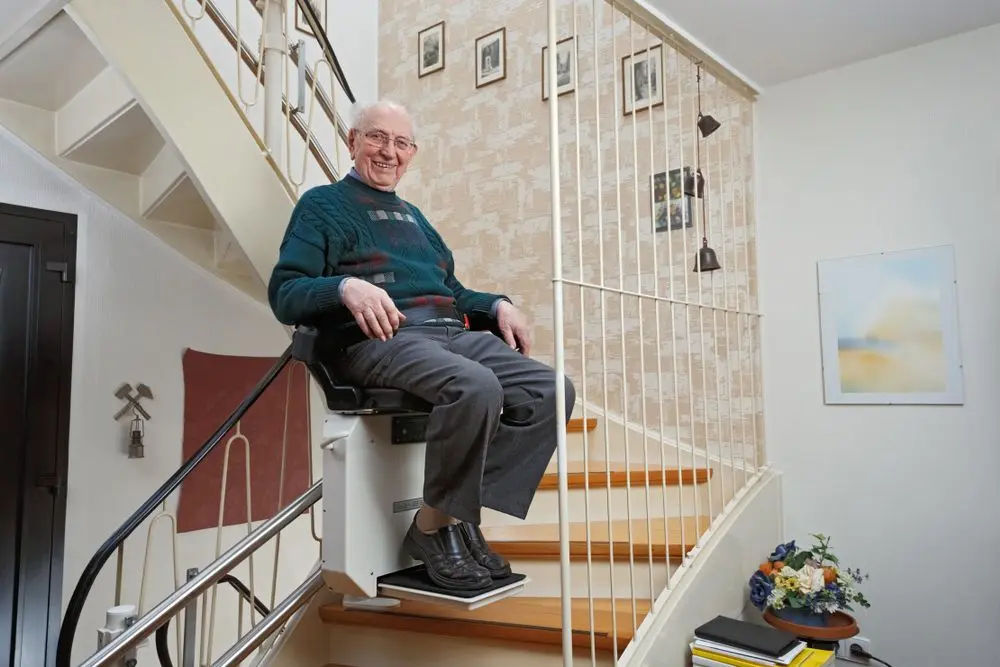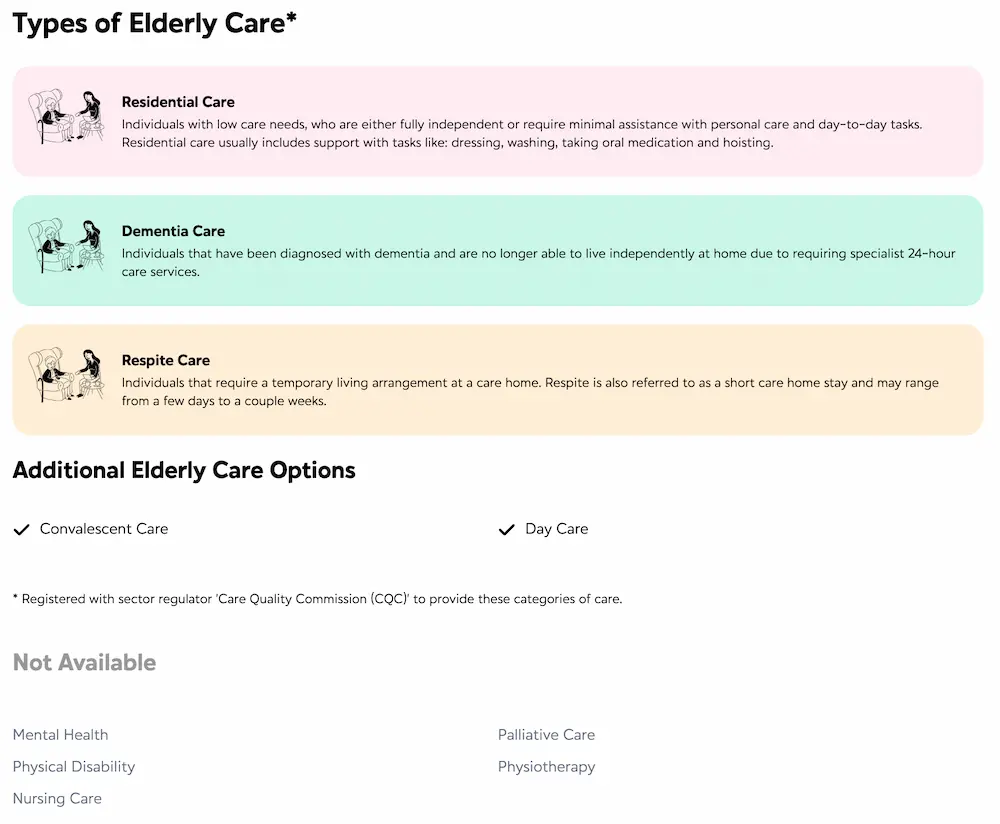Disabled Facilities Grant | Financial Support For Home Adaptations

Estimated Reading Time: 10 minutes
A Disabled Facilities Grant makes a home more suitable for a disabled person. This grant pays towards changes that make it easier for a disabled person to continue in their home, rather than having to move into a care facility such as a care home.
Local councils and authorities determine your eligibility for this grant, along with how much money towards work you can get.
Keep reading to learn more about Disabled Facilities Grants, including what it can pay for, how much you’ll get, whether you’re eligible and how to apply.
Arrange care at home
Browse the best home care in your area.
In this article:
- What is a disabled facilities grant?
- How much do you get?
- Small home adaptations
- Large home adaptations
- Are you eligible?
- How to get a home assessment
- How to apply for a disabled facilities grant
- If you aren’t eligible
- Find home care near you
- Support for disabled people in care homes
What is a Disabled Facilities Grant?
The Disabled Facilities Grant is available in England, Wales and Northern Ireland. It exists to make day-to-day life easier for disabled people by providing new or modifying current facilities within their homes.
Disabled people and older adults need to live in homes that can meet all their needs, with Disabled Facilities Grants aiming to bridge this gap.
A Disabled Facilities Grant is most commonly used within a house, but could also be used in a houseboat, caravan or somewhere else where somebody permanently lives.
Your local council will pay for work up to a certain amount if you (or the disabled person you’re applying for) meet all the requirements. Local authorities are obliged to provide this funding under the Care Act 2014.
Your local council will only approve any work that they consider essential (and if they generally think it’ll be of benefit). ‘Essential’ can be thought of as making changes which will help the disabled person lead an independent and fulfilling life.

How Much Do You Get?
Here are the maximum grant amounts throughout the UK:
England - £30,000
Wales - £36,000
Northern Ireland - £25,000
Bear in mind, these are only the maximum amounts you can receive. Exactly how much you or your loved one is eligible for depends on the results of a financial assessment. This will look at the income and savings of the disabled person (and that of their partner if they have one).
Disabled Facilities Grants are paid when the local authority has seen the finished work. They must be happy that it’s been completed to a good standard, and in line with whatever work they approved in the first place.
Local authorities can provide further financial support if the cost of work goes beyond the maximum grant amount. Whether or not they choose to do this is at the discretion of the individual council or authority.
In Scotland, local authorities can provide grants, loans, practical assistance and information to homeowners for similar repairs and adaptations. This is done under The Housing (Scotland) Act 2006.
Small Home Adaptations (Less than £1,000)
Disabled Facilities Grants aren’t always required. In some cases, the work required by a disabled person (or older adult) is smaller and not as expensive.
After having a care needs assessment, the local authority may deem you eligible for smaller home adaptations. These are classed as costing £1,000 or less - such as things like minor adaptations or new equipment for your home. Many of these can often be installed free of charge as well.
Small home adaptations could include:
- Grab rails
- Banisters or stair rails
- Dropped curbs
- Outside lights that come on when somebody is at the front door
- Altering lights to make them easier to use (such as having light switches within reach of where somebody sleeps)
- Other changes to make everyday life less arduous (this could include things like seats in the shower and/or bath to make slipping and falling less likely)
If specialist disability equipment is recommended during the care needs assessment, this may then be provided free of charge (such as hoists to help you get in and out of bed and mobility aids for easier movement around the home).
Large Home Adaptations (More than £1,000)
Larger home adaptations are where Disabled Facilities Grants come in. These grants require a financial assessment to check whether or not you’re eligible (and how much you’ll be required to pay towards the works, modifications or improvements).
Again, the part of the UK you live in will determine the maximum amount you’re eligible to receive.
Through a Disabled Facilities Grant, work is carried out by your local council’s housing department. They’ll only do work (such as installing pieces of equipment and making larger modifications) that you or the person you applied for has been assessed as needing.
Large home adaptations could include:
- Wheelchair ramps
- Widened doorways (for better wheelchair accessibility)
- Installing a stair lift
- Lowering kitchen worktops
- Fitting a wet room or level-access shower
Depending on the cost, you may also be able to get other pieces of equipment installed, such as monitoring systems, personal alarms and key safes.

We can help you find the best home carer for you or your loved one’s care needs, including domiciliary (hourly) and live-in carers. Request a free list of home care agencies, and our care experts will match you with suitable carers with availability in your local area.
Are You Eligible?
A Disabled Facilities Grant can help anyone with a disability, including:
- Anyone who is physically disabled
- Anyone who has difficulty hearing, seeing or speaking (to the point that it impedes day-to-day life)
- Anyone with a mental illness
- Anyone registered as disabled under Section 29 of the National Assistance Act 1948 (aged over 18)
- Anyone registered as a disabled child under the Children Act 1989)
While people under 18 don’t qualify, an adult can apply for a grant to provide facilities for someone under 18 years old.
You can then apply if you fall under one of the following criteria:
- You own and live in a home (as a freeholder or leaseholder)
- You’re a landlord or a tenant (tenants can apply themselves, but need their landlord’s permission. Alternatively, a landlord can apply on a tenant’s behalf. Landlords can refuse your application but need to provide a good reason for doing so, otherwise, they could be classed as breaking Disability Discrimination Laws)
- You live in a caravan, a houseboat or a similar form of accommodation
If you think you may be eligible but don’t fall into any of these categories, we’d recommend getting in touch with your local council or authority.
How To Get a Home Assessment
You can apply for a home assessment through GOV.UK. You can also call your local council to begin this process.
You'll be given a care needs assessment. This will determine whether you or your loved one require extra support. If the outcome of this assessment is that home adaptations are required, the process will continue in the way we've outlined below.
Occupational therapist assessment
The application process will begin with you (or the disabled person you’ve applied for) having their needs assessed by an occupational therapist. This is a really important step in the process, as the results will then be needed to prove your disability and why certain home modifications are required.
The process of being assessed by an occupational therapist may require several visits. Meeting on multiple occasions will help them get a really solid understanding of your specific needs and what home modifications or improvements they think would most benefit you.
Be aware that there’s often a lengthy wait list for one of these assessments. If you’re struggling, try getting in touch with your doctor or GP to see if they have any advice.
Financial assessment
You’ll also need to undergo a financial assessment. This assessment will work out whether or not you need to contribute towards any of the proposed work.
This means test will see the disabled person’s income (and that of their partner if they have one) calculated. Money is jointly assessed if the disabled person has a partner.
For example, if your income is less than the assessed needs (up to £30,000 in England), you won’t need to pay towards any of the work. If your income is higher, a percentage of your income will be used to calculate how much you could feasibly contribute towards the proposed works.
If you receive a benefit like income support, housing benefit, maternity allowance or income-based jobseeker’s allowance, your weekly income will be regarded as £1 (so naturally, you won’t have to pay).
How To Apply For a Disabled Facilities Grant
The process may differ slightly from region to region. To apply, get in touch with your local council and ask what you need to do. At this point, they should give you an application form.
You’ll usually make a Disabled Facilities Grant application in writing. When applying, you’ll need to include the following:
- What work you think is required (including things like equipment that needs purchasing and the cost of disconnecting utilities)
- At least two estimates of how much this work is going to cost
- A certificate with information about the current and future occupation of the property (so your local authority knows you or whoever the application is for will still be living there in the future)
You need to agree to continue living in the property for at least five years.
Councils have a maximum of six months to decide either way on your grant application. This six-month period begins when you formally apply. It doesn’t include time spent waiting for things like planning permission.

What If You Aren’t Eligible?
Whether they approve or refuse your Disabled Facilities Grant application, local authorities need to provide a written explanation of their decision. This should be given within six months of your application.
Your application may be refused because the local authority has viewed the works as ‘non-essential’. Or, they might think the person who you’ve applied on behalf of isn’t technically classed as disabled.
Challenging the decision
If the local authority refuses your application for whatever reason, you have the right to challenge their decision.
There are a couple of ways you could go about doing this. Many local councils will have a means of complaining (often through their website). If you can’t complain through their website, we’d recommend getting in touch directly. Then, you can ask how best to undergo the process of challenging their decision.
Another option is to complain through the Local Government Ombudsman. They make decisions on complaints about councils and adult care providers alike (in England).
Find Home Care Near You
We’re partnered with the best home care agencies across the UK, including in the following locations:
- South West England
- South East England
- London
- East of England
- West Midlands
- East Midlands
- Yorkshire and the Humber
- North West England
- North East England
- Scotland
What Support Is There If You Move Into a Care Home With a Disability?
If you’re finding it difficult to continue living at home, another option is to move into a care home.
In many of our residential care homes and nursing care homes, you’ll have your own bedroom and bathroom, along with helpful and compassionate staff who are there to provide whatever assistance and support you require. This can include things like personal care and administering medication.
Our care home listings state the type of elderly care they offer, and whether they cater to any specific needs, such as people who require physical disability or mental health care (see below).

Lottie matches care seekers with the best home carers for their care needs. You can request a free home care shortlist, where we’ll find you home care providers with availability in your local area.



